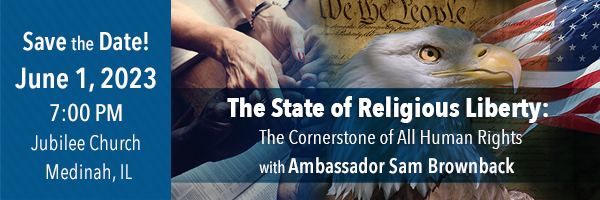Abortion and States’ Rights
On May 2, the town of Danville, Illinois became what some have called a “sanctuary city for the unborn.” After Planned Parenthood staff announced plans to open an abortion clinic in the town, the city council reacted by narrowly passing an ordinance (8-7), citing a section of federal law that forbids the mailing of abortion paraphernalia.
Danville’s recent ordinance does not quite make it a “sanctuary city”—at least not in the same sense that Seattle is a “sanctuary” for illegal immigrants on the run from federal immigration officials. Danville’s ordinance is actually a reverse “sanctuary” provision that enforces federal authority in the township, in the face of state law. And herein lies the convoluted back-and-forth of legal argumentation, as both the pro-life and the pro-choice movements have exposited the law to support their side.
The pro-life ordinance makes a clear-cut appeal to the U.S. Constitution, citing Article VI which makes all federal laws the “supreme Law of the Land.” The ordinance further references a section of federal law, U.S.C. §§ 1461–62, which prohibits using the mail system to deliver abortion paraphernalia. Thus, the ordinance explains, since 1) the Danville City Council is “bound by oath to support and defend the Constitution,” 2) the Constitution makes federal law the supreme law of the land, and 3) federal law prohibits mailing abortifacients, therefore Danville is upholding the Constitution in passing this restriction.
The pro-abortion-rights side is not backing down easily, however. According to Illinois Attorney General Kwame Raoul, Danville’s new rule violates Illinois state law. The state’s Reproductive Health Act prohibits local governments from restricting abortion rights tighter than the state law does, so he claims that Danville simply lacks the legal authority to pass such a regulation.
This article is not intended to endorse or refute either legal argument. Either way it turns out in court, the pro-life movement can still learn a valuable lesson from the Danville controversy.
Roe didn’t get rid of abortion—it made the national discussion that much more tangled.
Pro-lifers cheered as Dobbs struck down the blanket national ruling which said “the authority to regulate abortion is returned to the people and their elected representatives.” Immediately, state governors and legislators went to work to pass pro-life or pro-abortion laws, depending on the state.
I’m sure some of us, cheering for Dobbs, were tempted to view ourselves as the reasonable states-rights defenders, in opposition to those big, bad authoritarian federal mandates and rulings. But being “pro-states-rights” really only truly works for the pro-life cause when the state you live in is already pro-life. In states like Illinois, being “pro-states-rights” actually seems to be more like being “pro-choice,” at least in the Danville case.
So states’ rights is not our savior, if it ever was. Don’t get me wrong—it’s a worthy principle, enshrined in our nation’s founding, and one that works well for our side in many places, especially right when the Dobbs ruling came down and various states started banning abortion right and left. But those states only did so because they were already pro-life. The cultural and political groundwork was already in place. In states where these prerequisites are not already in place, “states rights” is just a further justification to keep and expand the abortion restrictions they believe in.
Dobbs was not the end of the pro-life fight. It just moved the battle to a different battlefield, one that is currently focused more on individual skirmishes in particular states than mass movements of troops on the national stage. The dispute over Danville’s ordinance shows us much more clearly how important the local cultural battle is. Overturning U.S. Supreme Court precedent is a major step, but it was only the first step.
Influencing culture and educating the populace who will in turn vote for next year’s lawmakers is the way to ensure the breakthrough we won with Dobbs will actually bring pro-life wins to our states’ laws.
When it comes to the abortion debate, our local neighborhoods are now the new Supreme Court chamber.




